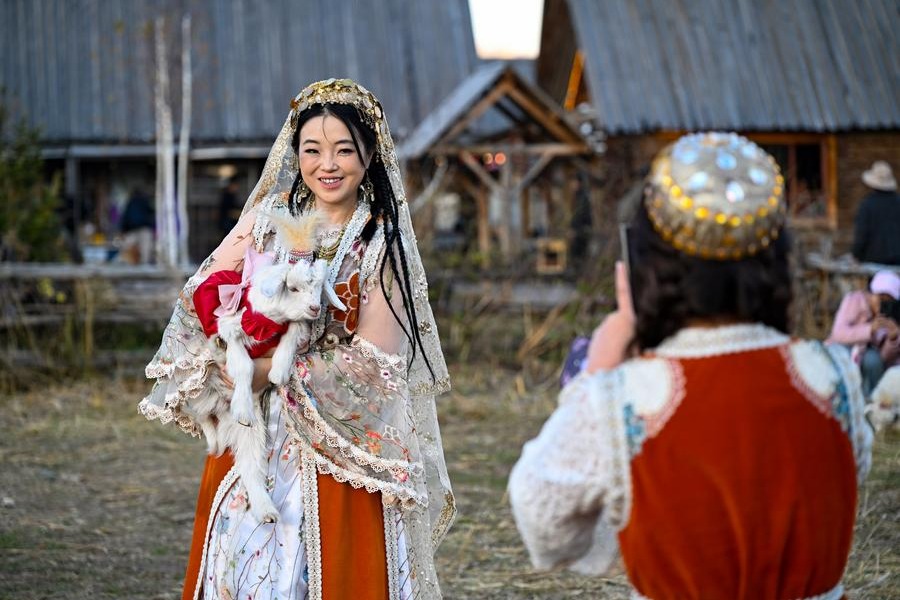The stories that moved us most during 2017

Tradition and tourism offer hope to poor rural residents
Sunshine came through the window and shone on the dusty concrete floor of the wooden house. An old TV set was the only electrical appliance in the living room, but a number of articles-including notebooks, papers, bottles and boxes-were scattered around the TV set which stood on a dust-covered table near the window.
Wan Zhengwen, a member of the Miao ethnic group, raised himself up from a bamboo stool and reached for his traditional costume which hung on the wall. After putting on the clothes, he went out to fetch a thick-brimmed hat he had left outside.
Neatly dressed, he sat back down on the stool and began chanting, the sun illuminating one side of his wrinkled face. The ancient song related Chinese mythology, in which the world was created long ago by Pangu who separated the sky from the earth and made the world as it is.
Wan has learned so many songs he can't count them, but many are chanted during traditional Miao festivals, and the 66-year-old has been anxious because of the uncertainty of passing them on to future generations.
Wan lives in Fanpai, a village in Taijiang county, Guizhou province. As in many villages, the young people have moved away in search of work, including Wan's two sons, so he has pinned his hopes on the children at the primary school.
As an inheritor of two State cultural heritages-muguwu, literally the "wooden drum dance", and choral love songs-Wan teaches the village children songs and vocal skills. He usually gives 50 to 60 one-hour lessons every year.
"It's sad that the children will leave as well. After leaving primary school, they will head to the county city of Taijiang to continue their education. They may have learned a lot by then, but they will have few opportunities to learn more afterward," he said when I visited the village in June.
When Xunmei, a tourism development company, decided to open a guesthouse in Fanpai, it gave hope to Wan and the other residents that the rising number of job opportunities would prompt the young people to return and learn to perform the traditional songs and dances for tourists, which would help to preserve the ancient skills.
The guesthouse officially opened in July, but when I spoke with Wan recently by phone, he said had not seen an obvious rise in the number of tourists.
"The road to the village is pretty bad, which puts many people off visiting," he said, adding that construction work will start on a new road this year, which may help to attract more tourists.
He will choose his successor as the inheritor of the village's cultural heritages before Lunar New Year, which will fall on Feb 16.
- Charting China's progress in 75 years (5)
- Hong Kong-Zhuhai-Macao Bridge receives over 20 million passengers this year
- Nation ramps up public services to meet rising cultural demand
- World Bank report ranks Hong Kong among top 10 global business hubs
- National Day holiday brings box office surge
- Hong Kong wins global acclaim as one of top places to do business





































